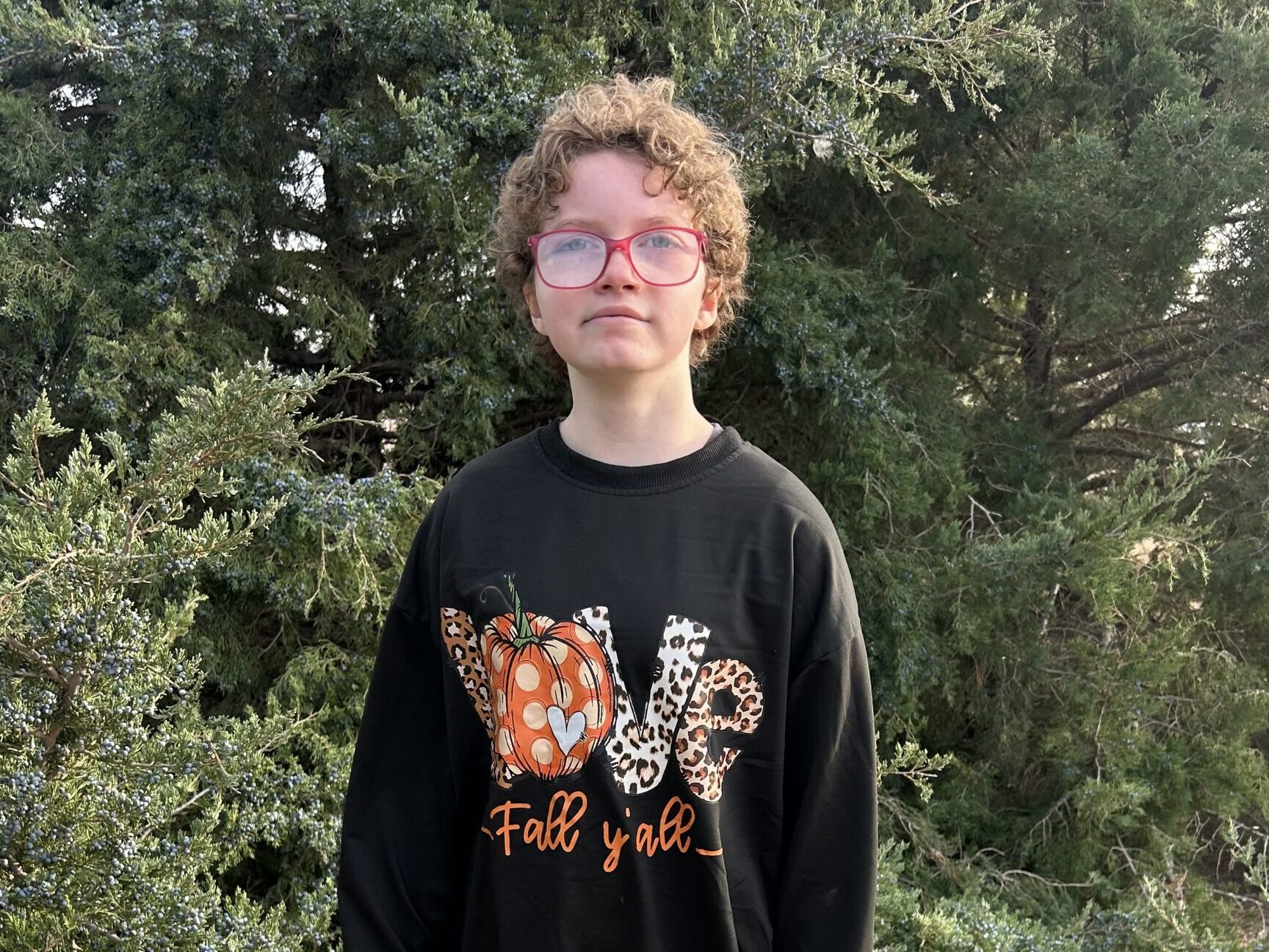Imagine accepting a new job in an unfamiliar town straight out of college. Now imagine that during your first week at that new job, your spouse suffers a life-threatening, debilitating brain injury. You know no one, you’re living in a motel, and your closest relatives reside a state away. Most of us would probably crumble to the floor in grief and anxiety – and no one would blame Joy Davis if she did. We don’t know how she feels inside, but outwardly, she seems to take it in stride with grace and humor.
“Life happens,” she says. “I’m just grateful for the job because it’s been foundational for me, something to focus on.”
Joy joined Saint Francis in early June as the new art therapist at Salina West, just two weeks after earning her master’s degree from Emporia State University in Emporia, Kansas. Her education, however, began in a small village in the Mexican state of Tamaulipas, five hours south of Brownsville, Texas.
“My parents were missionaries and ran an orphanage in Mexico for about 18 years,” she says. “So I was born into a household of about 50 children.”
The middle child of five biological siblings, Joy also has a younger adopted sibling and “dozens of other brothers and sisters” from the orphanage. Because of a change in Mexican laws, Joy’s parents closed the orphanage when she was 11, packed up the family, and moved to Honduras, where they opened another home for 30 orphans about an hour southeast of the capital, Tegucigalpa.
“I spent my childhood in Mexico and my teen years in Honduras,” she says. “I was home-schooled and grew up in that culture. Spanish is actually my first language. But there’s lots of violence in Honduras, lots of robberies and hold-ups. The country had had a civil war, and it was in tumult. We got held at gunpoint and were shot at multiple times. My dad ended up having a nervous breakdown, so the family returned to the States. I was about 20.”
The family moved to Texas first, then Colorado, where Joy’s parents eventually retired. She attended Colorado State University, earning her bachelor’s degree in Spanish with a minor in art. She longed for a career in art and considered working in a gallery or opening her own. Yet, she also wanted to help others. Someone told her about art therapy, and after researching affordable programs online, she and her husband moved to Emporia.
While in graduate school, Joy interned at CrossWinds Counseling and Wellness, working primarily with adults. She heard about the position at Saint Francis from a job posting shared by department faculty. She interviewed and, two weeks after graduating, started her new job.
She received a pleasant surprise the first time she entered the art therapy building on the Salina West campus.
In college, our professors prepared us to work at places that likely would not pay for our art supplies or would provide only a tiny budget for them. I bought my own supplies during my internship and carried them with me. But when I walked into this place, I was amazed that there was so much here. It was exciting.”
Even so, she was nervous. Fresh out of school, she had some, but not much, experience working with kids.
“With kids, you need lots more energy and patience,” she says. “It’s like herding cats some days.”
Nevertheless, she’s discovered that she loves it and relates to them well. Having grown up among children traumatized by violence and the loss of their parents, she has a natural understanding of the kids she serves at Salina West.
“It seems to have prepared me. I connect with these kids because I see in them so many of the same thought processes and how they see the world and express emotions. It’s interesting. I’m an empath and pick up emotions from people, so I remember knowing that my orphaned brothers and sisters were traumatized and that they acted differently from me on an emotional level. Even as a child, I knew I felt more secure because I had my biological parents, but I didn’t fully understand the psychological side of it.”
Now, Joy has studied that psychology. She knows how to help young people struggling with that trauma.
“Trauma shuts down the verbal side of the brain, so often, people with traumatic experiences can’t express what happened to them with words. But they can with art. Art reflects what’s going on inside a person.”
Fortunately, Joy’s husband, Ted, is recovering from the stroke that sent him to Salina Regional Health Center for two months. He can’t walk on his own yet, but he’s gradually regaining his ability to speak. The couple arrived in Salina on a Saturday, and Joy began her onboarding that Monday. The stroke hit the following Saturday. When she’s not working, she helps Ted with his rehabilitation at Arbor Court Independent Living complex, where they currently reside. All things considered, she’s glad to be here.
“At first, I had lots of trepidation because I wasn’t sure if I could do this,” she says. “But I’ve really enjoyed it. I like the ambiance here (at Salina West). It’s peaceful; it’s beautiful. I feel like God just gave me this job. It’s a tailored fit for me.”





